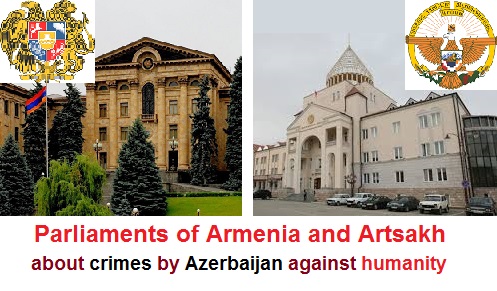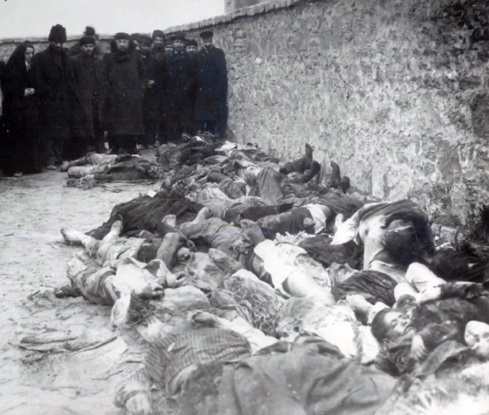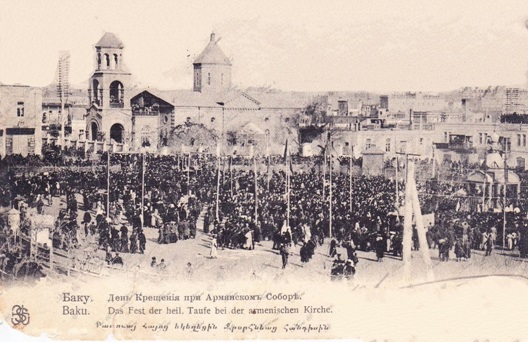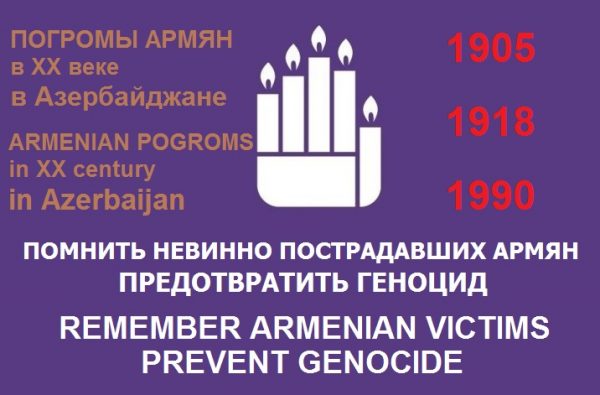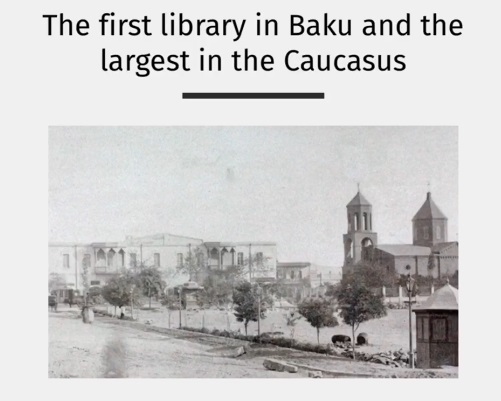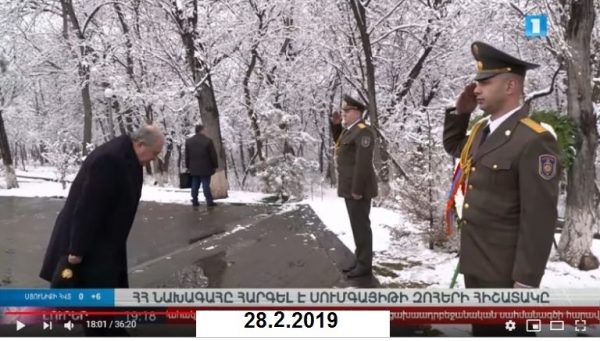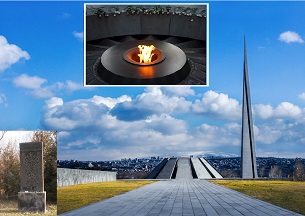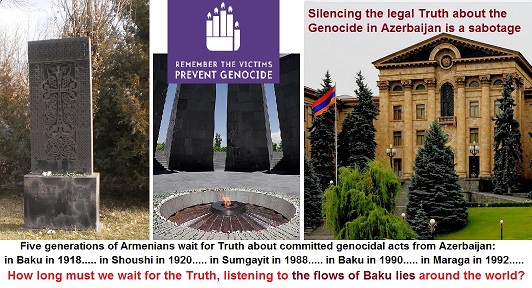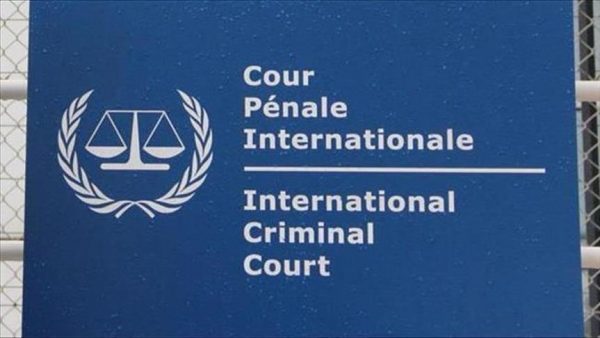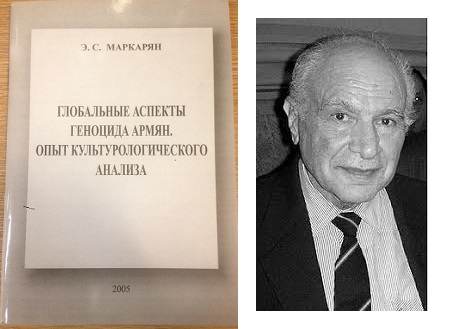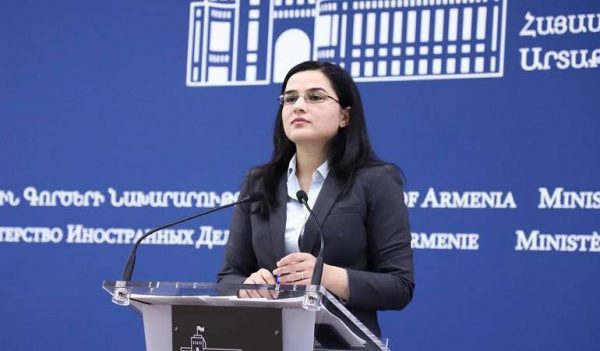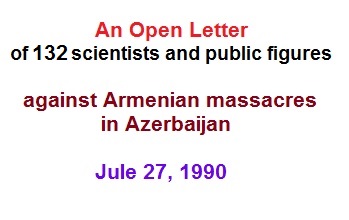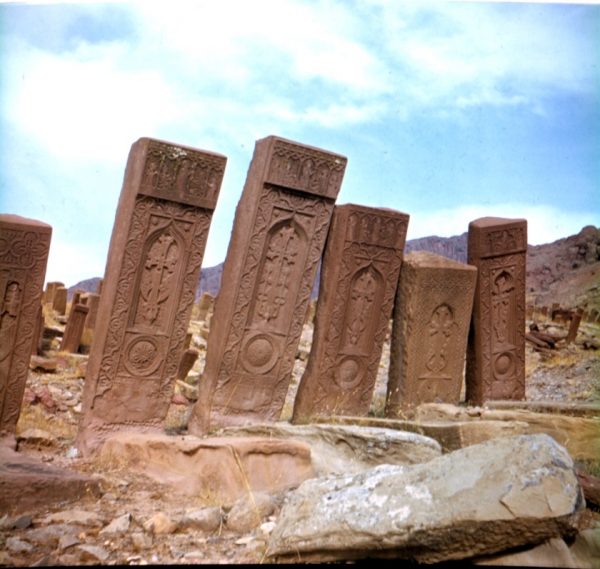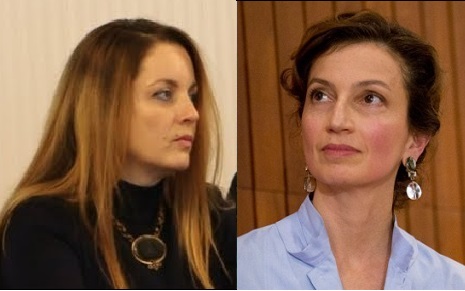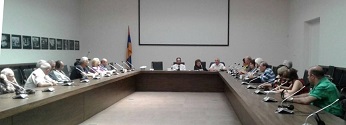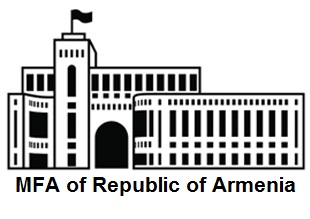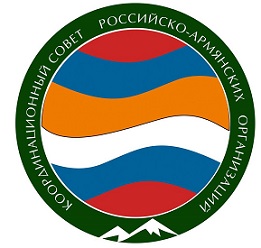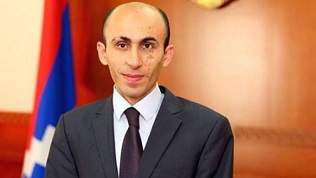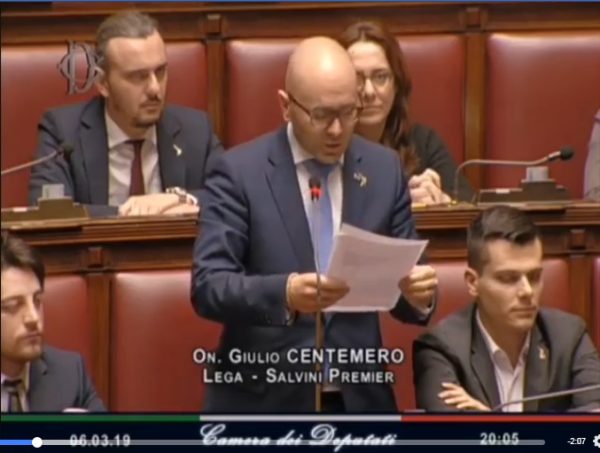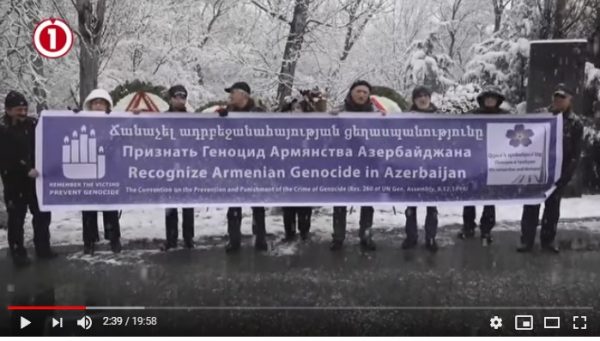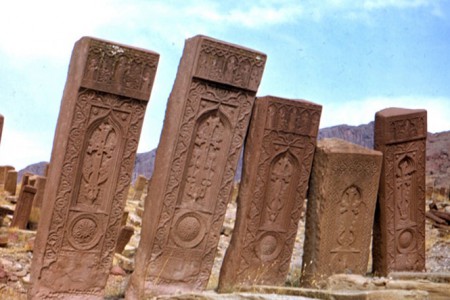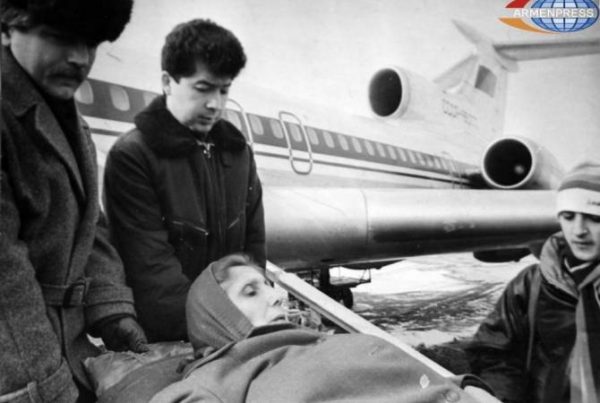“Los Angeles Times” on the barbaric crime of cultural genocide by Azerbaijan
Below is the article By Catherine Womack from “Los Angeles Times”, Nov 7, 2019. For centuries the sacred khachkars of Djulfa stood tall along the banks of the River Aras — hulking and ornately carved 16th-century headstones, an army 10,000 strong, steadfastly guarding the world’s largest medieval Armenian cemetery. Earthquakes, war and vandalism diminished their ranks, but by the middle of the 20th century, thousands of khachkars still remained. Today, however, not a single statuesque sandstone sculpture stands at Djulfa, in the remote Nakhichevan region of Azerbaijan. Despite a 2000 UNESCO order demanding their protection, evidence published in the art journal Hyperallergic this year indicated that the monuments […]
